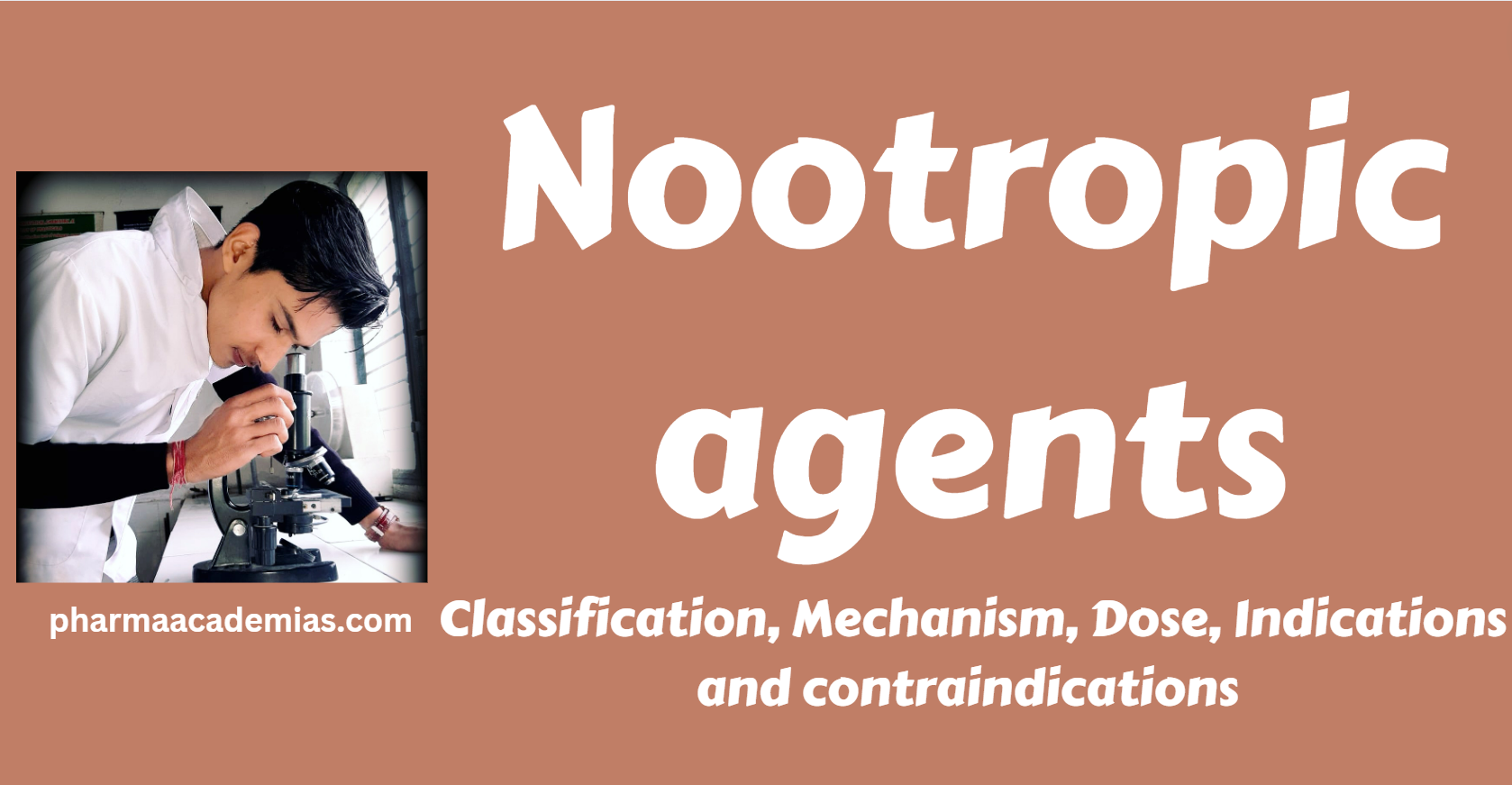Nootropic agents, often called “smart drugs” or “cognitive enhancers,” purportedly enhance cognitive functions, including memory, creativity, motivation, and overall mental performance. These substances are used to improve cognitive abilities and promote mental well-being.
Classification of Nootropic Agents
1. Racetams:
Examples: Piracetam, Aniracetam, Oxiracetam.
Mechanism: Believed to enhance memory and cognitive function.
2. Cholinergic:
Examples: Choline, Alpha-GPC (Alpha-glycerophosphocholine).
Mechanism: Support the production of acetylcholine, a neurotransmitter associated with memory and learning.
3. Adaptogens:
Examples: Rhodiola Rosea, Panax Ginseng.
Mechanism: Thought to reduce stress and fatigue, promoting cognitive function.
4. Modafinil:
Mechanism: Promotes wakefulness and increases alertness.
5. L-Theanine:
Found in tea leaves, it is believed to promote relaxation and improve attention.
Pharmacological Actions of Nootropic Agents
1. Enhancement of Neurotransmission:
Some agents aim to enhance the activity of neurotransmitters, such as acetylcholine, involved in learning and memory.
2. Neuroprotection:
Certain nootropics are believed to have neuroprotective properties, supporting the health and function of neurons.
3. Increased Blood Flow to the Brain:
Some agents may promote increased blood flow to the brain, improving oxygen and nutrient delivery.
Dose
1. Dosage Varies:
The dosage of nootropic agents varies based on the specific substance and the intended purpose.
Indications
1. Cognitive Enhancement:
Nootropics enhance cognitive functions, including memory, attention, and problem-solving.
2. Support for Learning and Memory:
Particularly for racetams and cholinergic, which are believed to support memory and learning processes.
3. Reducing Stress and Fatigue:
Individuals may use adaptogens like Rhodiola Rosea to reduce stress and fatigue, potentially promoting cognitive function.
Contraindications
1. Individual Sensitivities:
Some individuals may be sensitive to specific nootropics, and caution is advised.
2. Interactions with Medications:
Healthcare professionals should discuss the use of nootropics with individuals, as these substances may interact with other medications.
3. Pregnancy and Lactation:
Advisors caution individuals due to limited information on the safety of nootropic use during pregnancy and lactation.
4. Underlying Health Conditions:
Individuals with underlying health conditions should consult healthcare professionals before using nootropic agents.
It’s crucial to approach the use of nootropic agents with caution and consult with healthcare professionals, as the scientific evidence supporting their efficacy and safety may vary. Individuals should carefully consider potential risks and benefits, as responses to these substances can differ.

